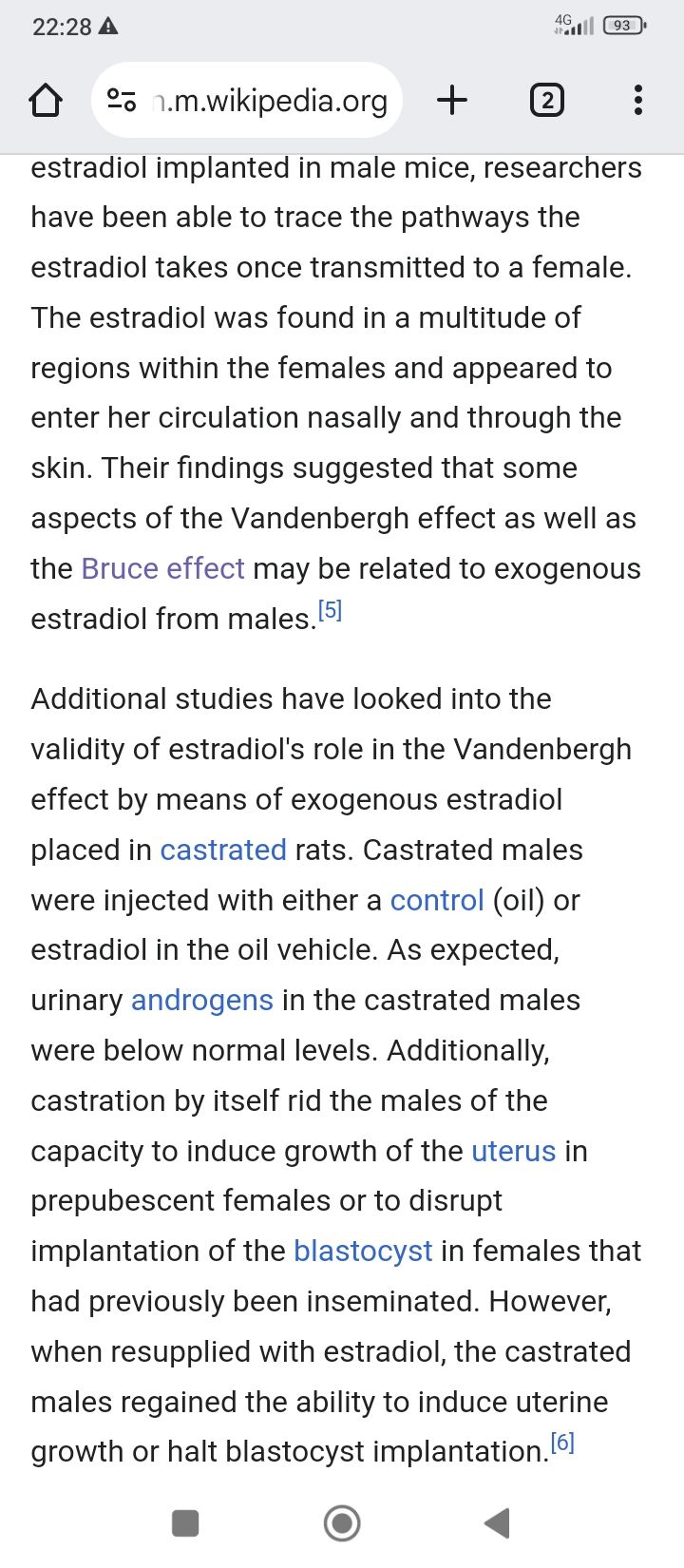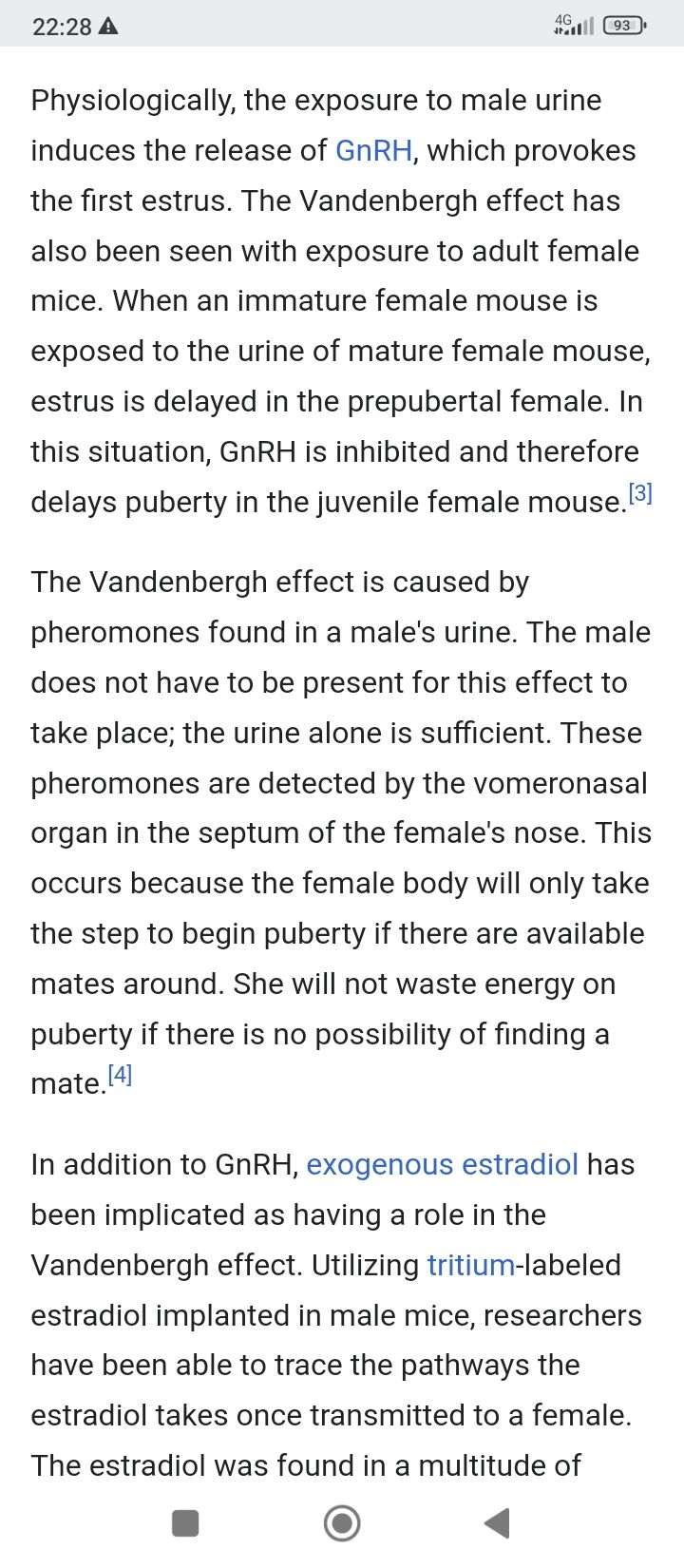Peat did not believe in the androgenic man?
-
This post is deleted! -
@heretoday
He's right on many things but cringe on others. Surprising he managed mostly independent thought through the liberal / socialist revolution period, but many of those views seem to have stuck with him. -
This post is deleted! -
Wtf is this thread? Peat once made an infertile woman ovulate by lending her his cardigan. And that's no joke.
-
@natureman Rizzmond Peat
-
This post is deleted! -
@wester130 said in Peat did not believe in the androgenic man?:
His love of painting, art and poetry
His recommendation of progesterone
A preference for an introspective, reflective thoughtful life
I think he mentioned fertility for men several times, and fertility is one of the most common factors or the most commun factor associated with male, I'm not sure, I think he also mentioned that he often had sex dreams.
If you give credence to theories, Georgie has shared study(s) where progesterone and pregnenolone are most beneficial for male fertility, and that high dose testosterone reduces fertility.
https://lowtoxinforum.com/threads/male-fertility-depends-on-intensity-of-sperm-metabolism.32004/
Even if it varies from species to species, the other factors that are commonly associated with males are generally the ability and propensity to compete and fight, fighting physiognomy, and what you have mentionned do not fully prevent that
Also if you look at what is said about animals, for example moose, rams, they don't breed and fight all year round, they do it specifically during the rut at a specific time of the year, so even these two main elements that are associated with males are manifested in specific context
-
@random said in Peat did not believe in the androgenic man?:
the other factors that are commonly associated with males are generally the ability and propensity to compete and fight, fighting physiognomy, and what you have mentionned do not fully prevent that
me: do you think being competitive has a place in a healthy individual or would they be fairly indifferent about being better than others?
ray: I think it’s a form of neurosis
me: what do you think of chess as a hobby? Does mental exercise have the same potential to be anti-metabolic as physical exercise does?
ray: I think the abstract nature of games makes them potentially harmful, addictive.
-
@Ponder said in Peat did not believe in the androgenic man?:
ray: I think it’s a form of neurosis
From a capitalist, and an anti-capitalist, socialist etc perspective, competition is always "bad" because it means amoral exploitation for paper money, and they always see "competition" as code for a "free market" economy.
I generally agree with Peat, though. The most competitive people I've known seemed to feel: inadequate, weak, unloved, etc. Some of the top school athletes are also some of the worst behaved, with irresponsible/bad parents, and drugs, sex, or gambling habits.
The question is competition within which realm?
Hyper-competitiveness is neurosis while hypo-competitiveness is like depression / anhedonia. There has to be some give and take, so it's inaccurate to say it is neurotic to receive pleasure from a stimulating activity, let's just say of a constructive sort, like academics or research, music, engineering, or something. Whether or not any of these things have progressed because of competition is a good question. I suspect it's the peak area of the inverted-U curve here, where stimulation and play are highest, in between anhedonia and cut-throat neurosis.@Ponder said in Peat did not believe in the androgenic man?:
ray: I think the abstract nature of games makes them potentially harmful, addictive.
Philosophy and basically all language, poetry, writing, mathematics is filed under this one. See: Wittgenstein and also Heraclitus. I think both were obviously neurotic but their neurosis was also ironically about the neurosis of language / communication. "Language as neurosis" is a very likely reality.
-
@Corngold said in Peat did not believe in the androgenic man?:
"Language as neurosis" is a very likely reality.
Sounds accurate. Hopefully someone can get to the bottom of this "neurosis".
-
@Corngold I think he is just thinks about mutual aid and Ray hints at the part about abstraction because he has critiqued abstract art and now I realize he probably doesn't like abstraction and would need to look more into his thoughts on abstraction.
-
There was a woman who couldn't get pregnant that came to his practice for help. He lend her his cardigan and the pheromones on his clothing alone was enough to make a seemingly infertile woman ovulate.
Can't think of anything more androgenic than that.
Most peoples idea of what is "manly" or "macho" are behaviours driven by estrogen (fighting, etc.).
-
@natureman said in Peat did not believe in the androgenic man?:
There was a woman who couldn't get pregnant that came to his practice for help. He lend her his cardigan and the pheromones on his clothing alone was enough to make a seemingly infertile woman ovulate.
Can't think of anything more androgenic than that.
Most peoples idea of what is "manly" or "macho" are behaviours driven by estrogen (fighting, etc.).
Whever or not fighting is driven by estrogen doesnt make it more or less manly. The cardigan anecdote you mentionned, "the male mouse effect" is also associated with estrogen
-
@random
@random said in Peat did not believe in the androgenic man?:
The cardigan anecdote you mentionned, "the male mouse effect" is also associated with estrogen
Yes, an estrogenic response to ANDROGEN derived phermones such as androstenol
-
@alfredoolivas said in Peat did not believe in the androgenic man?:
@random
@random said in Peat did not believe in the androgenic man?:
The cardigan anecdote you mentionned, "the male mouse effect" is also associated with estrogen
Yes, an estrogenic response to ANDROGEN derived phermones such as androstenol
Tard caps unecessary.


-
@random Interesting. Thanks for doing the research
-
Peat was trans, his dream was to transition into a female.
-

-
@herenow Did you follow up on what he recommended by that exactly? Did he tell you how to proceed to be more androgenic?
-
Go forth and distribute cardigans.